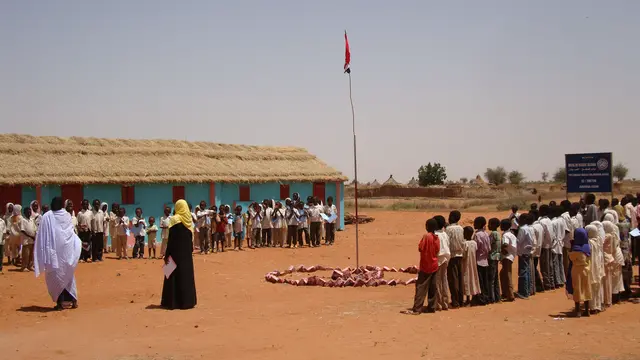Gender inequality, early marriage and household work on girls have culminated into unequal participation of girls in education and increased disparity in South Sudan, the UN children's fund (UNICEF) said on Tuesday.
Speaking during an event to mark the international girl child day in Juba, Vinoba Gautam, UNICEF South Sudan Education Manager, said only 35 percent of girls in South Sudan have access to school and female teachers constitute only 15 percent of the entire teaching force of an estimated 40,000 instructors countrywide.
Gautam said conflict, bad cultural practices and early marriage are to blame for the gender imbalance in the education sector, calling on authorities and parents to protect girls from early marriage, improve access to education for adolescent girls to increase girl's chances of breaking the circle of poverty.
"Women teachers serve as important role models to girls in schools. The government and partners must exert efforts to start preparation of women as teachers, head teachers, school inspectors and senior education officials. This starts with keeping girls in school so that they can meet the entry requirement to train as teachers," he said.
He said less than half of schools in South Sudan have inadequate sanitation facilities making it hard for girls to continue with their education.
Gautam disclosed that UNICEF and partners are working to improve learning environment so that schools become attractive to girls to allow them remain in school and complete their education.
A teacher and his students in Dabkaraya El Bahar Village, White Nile, Sudan. Photo: OCHA/Matija Kovac
Michael Lopuke, Undersecretary in the Ministry of General Education and Instruction said that despite all the efforts put to uplift girls' education in South Sudan, a section of the country's largely pastoralist community is left out, adding that their economic and cultural lifestyles bar girls from school.
"It is an appeal to ensure that education is for all children of South Sudan regardless of whether they are from pastoralist communities, agricultural communities or urban areas," he said.
He said the government has introduced initiatives such as offering capitation grants to schools and cash transfers to girls that increased enrollment, retention and school completion in order to reduce gender disparities.
South Sudan's education indicators remain the worst in the world. A report by UNICEF released last month said South Sudan is the second country in the world after Liberia with the highest proportion of out-of-school children.
(APD)
 简体中文
简体中文

